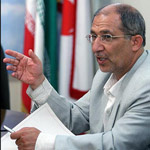Behind Riyadh’s Equivocality

For Iran, there are solid reasons to look at Saudi Arabia with distrust. Riyadh is Tehran’s regional rival on the one hand, and a close ally of Washington and a supporter of its Middle East policies on the other. Saudis have never hesitated to prove themselves as reliable partners, with ample potentials and capabilities which provide firm support to facilitate the accomplishment of US regional strategies. Riyadh has also never faltered to show Tehran how it enjoys Washington’s support for regional agenda.
Nevertheless, Riyadh knows it can’t up the ante against Tehran. Iran is Saudi Arabia’s marine border and every year, hundreds of thousands of its citizens make a pilgrimage to the holy cities of Mecca and Medina in Saudi Arabia. To stake its claim as the patriarch state of the Muslim World, Saudi Arabia needs to keep ties with Iran at a certain level. So Riyadh’s equivocal remarks on Iran, its regional role and its nuclear program serve a dual purpose: to reinforce position as a trustworthy ally for Americans and to please Iranians who get fairly agitated as the Saudis lean towards Washington.
In the current circumstances, it has become obvious that US cannot take military actions against Iran and there is a certain limit to sanctions. Aware of his reality, Saudi officials have decided to ta006Be the middle ground and word their remarks in a way which mirrors policy restrictions of the anti-Iran front. So it shouldn’t come as a surprise if we hear that in the recent days, Saudi diplomats have denied reports about cooperation with Washington to pressure China take back its support for Iran.

